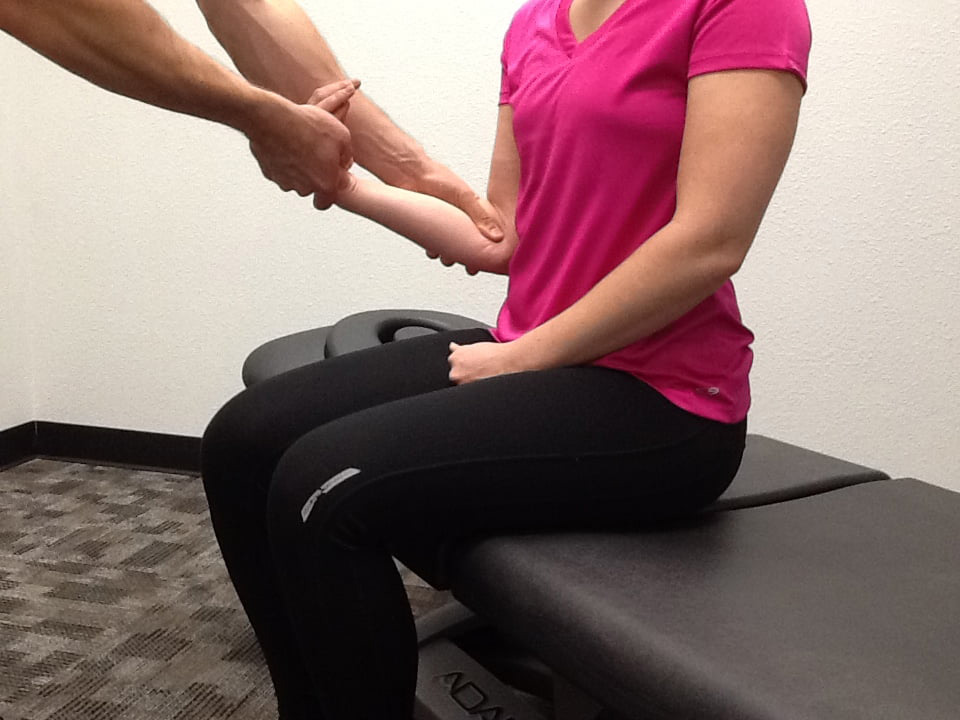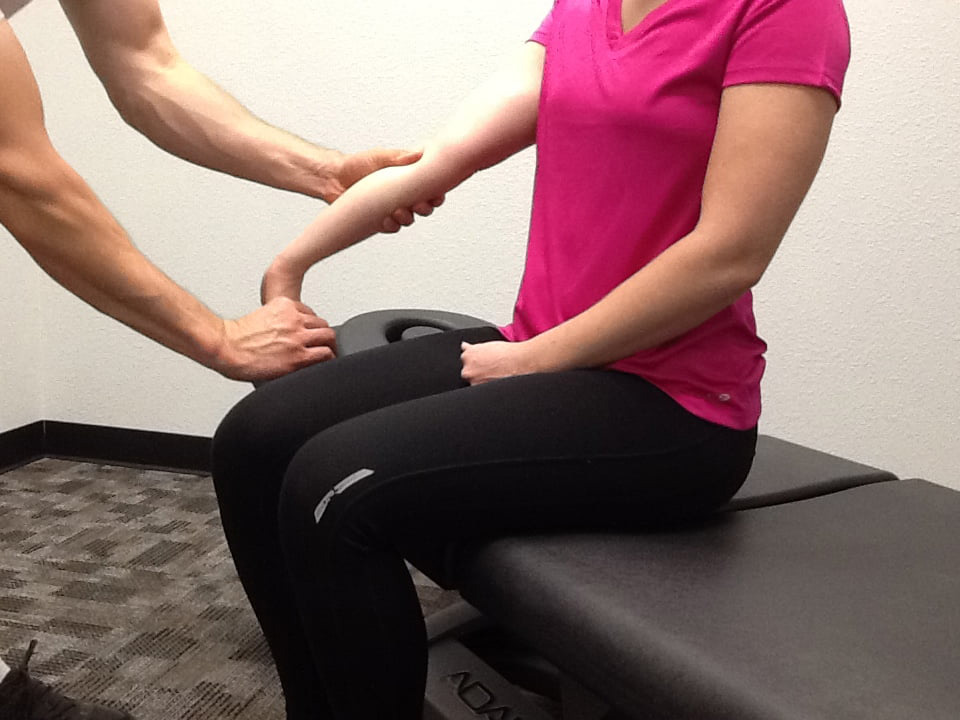Golfer’s Elbow AKA Medial Epicondylitis
Golfers elbow in Omaha, NE
Golfer’s elbow (medial epicondylitis) causes pain and inflammation in the tendons that connect the forearm to the elbow. The pain centers on the bony prominance on the inside of your elbow and may radiate into the forearm. Golfer’s elbow is usually caused by overusing the muscles in the forearm that allow you to grip, rotate your arm, and flex your wrist. Repetitive flexing, gripping, or swinging can cause pulls or tiny tears in the tendons.
Despite the name, this condition doesn’t just affect golfers. Any repetitive hand, wrist, or forearm motions can lead to golfer’s elbow. We see the conditions in many weightlifters or CrossFit athletes. People may also get it from using tools like screwdrivers and hammers, raking, or painting.
Treatment for golfer’s elbow
There are many treatments available for golfer’s elbow, although painful and nagging the success rate of treating golfer’s elbow is pretty high. Treatment options and how rapid the condition resolves is dictated by how long the patient has been experiencing the problem. If you have been dealing with medial epicondylitis for greater than 4 weeks chances of ice and rest alone for solving golfer’s elbow is extremely unlikely.

Active Release Techniques (ART) treatment for golfer’s elbow

Active Release Techniques (ART) treatment for golfer’s elbow
It is important to treat the entire kinetic chain for an elbow injury. Not just the point of pain. In order to effectively balance your muscles and remove joint restrictions at Behm Muscle & Joint Clinic we conduct a functional movement screen to identify your muscle imbalances. By utilizing a series motion analysis tests, we can identify the exact type, extent, and location of soft-tissue restrictions.
We then use soft-tissue treatments (Active Release Techniques) and follow-up exercises to release and resolve these restrictions, and then strengthen the muscles to prevent re-injury. With this type of treatment perspective, we look beyond just the symptomatic areas, and also consider the effect that other soft-tissue structures within the body’s kinetic chain have upon the injury. We are able to achieve a very high level of success in treating these tendinitis conditions simply because we identify and remove all the multiple levels of restrictions that inhibit the sliding and gliding of soft-tissues in the area.
Following soft tissue therapy we implement strengthening exercises. One specific type of strengthening exercise (eccentric) that lengthens the tendon of the wrist extensor muscles has been shown to be particularly effective in treating chronic forearm tendon irritation.
In a 2014 study from the International Journal of Sports Physical Therapy (research article) on treatment of chronic medial epicondylitis, the outcome measure for chronic medial epicondylosis was markedly improved with the addition of an eccentric wrist flexor exercise versus standard physical therapy. Below is an example of wrist flexor eccentric strengthening exercise. The damaged tendons are loaded/strengthened during the lengthening phase of the exercise as opposed to the shortening phase (concentric).
The Behm Muscle & Joint Clinic approach to golfer’s elbow
At Behm Muscle & Joint Clinic, we focus on treating not only the symptoms but the root cause of your golfer’s elbow. Whether you are suffering from an acute case or chronic elbow pain our first approach will be to look at not only the tissues of your forearm but the mobility of your wrist, shoulder and mid back. Often times restrictions in other areas of the body manifest themselves as pain in another area. We employ the best scientific, evidence-based, treatment procedures using a combination of chiropractic manipulation, soft tissue therapy, and rehabilitative exercises. Our Bellevue, NE chiropractic services include: Chiropractic adjustments, myofascial release, active release techniques, dry needling, rehabilitation, rock tape. If you or someone you know is dealing with medial elbow pain do not hesitate to give us a call at 402-292-1450 or schedule a consultation online.
About the author
Dr. Behm was born and raised in Papillion, NE. He received his Bachelor’s degree in Exercise Science from the University of Nebraska – Omaha and following his undergraduate studies was a certified personal trainer (NSCA-CPT – National Strength and Conditioning Association) in the Omaha area for years, helping clients achieve their health and fitness goals. He received his Doctorate in Chiropractic from Cleveland Chiropractic College – Kansas City. While in school, he received multiple certifications to increase his knowledge of the human body and how to properly assess and treat his patients. This translates into our integrative approach to Chiropractic care and our combination of therapies to better address your musculoskeletal complaints. Dr. Behm is excited to return to his hometown and serve the community around him.